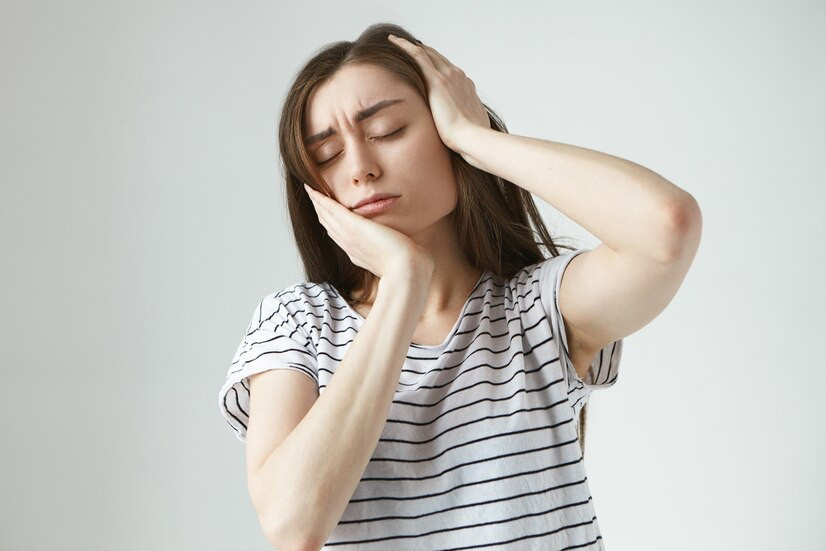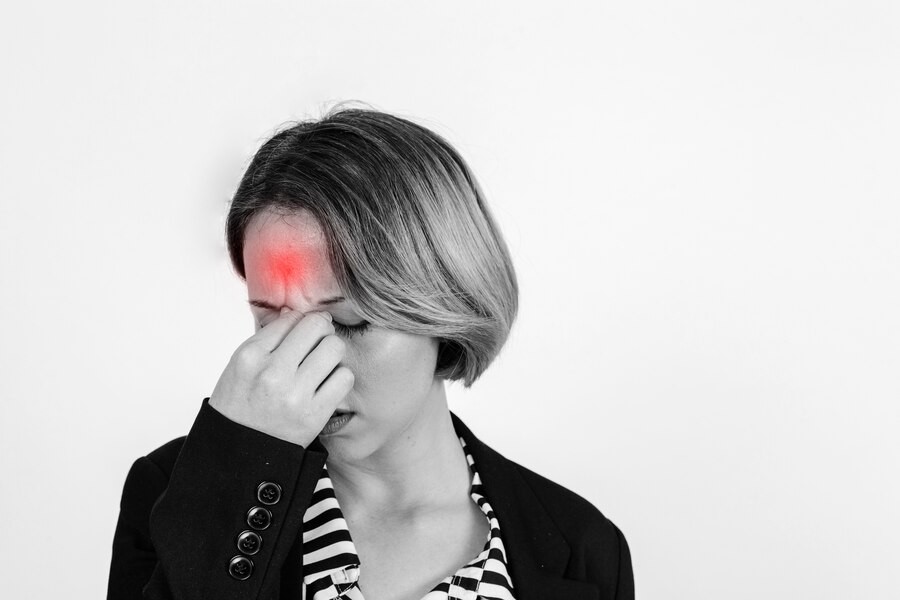The emotions you feel can affect your physical health. In some people, explosive anger can cause headaches. How does anger cause headaches? Check out the following review.
The relationship between anger and headaches
Anger is actually a healthy and natural emotion when facing certain situations and conditions, for example, when we are treated unfairly. Your anger causes you both psychological and physical stress. It is not uncommon for people to get headaches while angry or afterward.
Anger alone is not the primary cause of headaches. When angry, the body produces adrenaline and cortisol, which are stress hormones. The release of these hormones triggers the body's fight or flight response, putting the person on high alert. When this occurs, blood vessels constrict, resulting in reduced blood flow to the brain, which can cause headaches.
However, when angry, the muscles in the neck, head, and shoulders will also tighten. This can result in migraines and tension headaches.
Tension headaches are characterized by tightening of the neck and head muscles, as well as sensitivity to surrounding sounds or light. Tension headaches usually improve as anger subsides and calm returns.
Unlike migraines, this headache typically occurs on one side of the head and causes a throbbing sensation. Migraines cause throbbing sensations and can interfere with daily activities.
How to treat tension headaches
Tension headaches occur when the muscles in the neck, head, and shoulders tighten, resulting in a headache. To treat it, here are a few options:
1. Massage
Massage can help relieve muscle tension, which causes headaches. Gently massage the nape of the neck, lower head, neck, shoulders and temples using your fingertips in a circular or upward motion to help restore muscle flexibility. When massaging, use oils with a warming effect on the skin to promote a sense of relaxation.
2. Compress
Warm or cold compresses can help relieve tense muscles.To relieve pain, use a heating pad, a hot water bottle, or take a warm bath. In addition to warm compresses, you can apply a cold cloth to the neck and forehead.Ice cubes should not be applied directly to the skin because they can damage the capillaries.
3. Breathing exercises
Regulating your breathing patterns can help with tension headaches.You can try deep breathing, as follows:
- Lie on your back in a comfortable place or sit with your back straight, feet flat on the floor and hands in your lap
- Imagine something that makes you calm
- Breathe in and out slowly and deeply for at least 10 minutes
- When finished, sit quietly for a minute or two
4. Stretching
In addition to breathing exercises, stretching and flexibility exercises like yoga can be used to relieve headaches.
5. Getting enough sleep
Adequate rest and sleep can relieve tension, headaches, and migraines.To get a better night's rest, avoid caffeine before bedtime and make your bedroom feel cozy. Sleep with the lights dimmed or off to make sleep more restful.
Anger is a normal emotion, but it can result in headaches. Anger can cause tension headaches, which typically go away once your anger has subsided. Home remedies can help relieve tension headaches. If your headache does not show signs of improvement, you should see a doctor immediately.
If you need medical advice or consultation, you can either visit a doctor or make use of the consultation features that are available in the Ai Care application by downloading the Ai Care application from the App Store or Play Store.
Looking for more tips and health tricks, first aid, and home remedies? Click here!
- dr Nadia Opmalina
NHS: 10 Headache Triggers. Available from: https://www.nhs.uk/conditions/headaches/10-headache-triggers/#
Stoppler, M. (2023). Fits Of Rage, Forgetfulness, Headache And Headache (Worst Ever). Available from: https://www.medicinenet.com/fits_of_rage_forgetfulness_headache_worst_headache/multisymptoms.htm
Mayo Clinic. Anger management: 10 tips to tame your temper. Available from: https://www.mayoclinic.org/healthy-lifestyle/adult-health/in-depth/anger-management/art-20045434#
WebMD. (2022). Heart-Pounding, Stomach-Knotting: Stress and You. Available from: https://www.webmd.com/balance/stress-management/ss/slideshow-stress-and-you
American Psychological Association. (2023). Stress has effects on the Body. Available from: https://www.apa.org/topics/stress/body
WebMD. (2022). Tips to get Rid of Headache. Available from: https://www.webmd.com/migraines-headaches/5-ways-to-get-rid-of-headache












